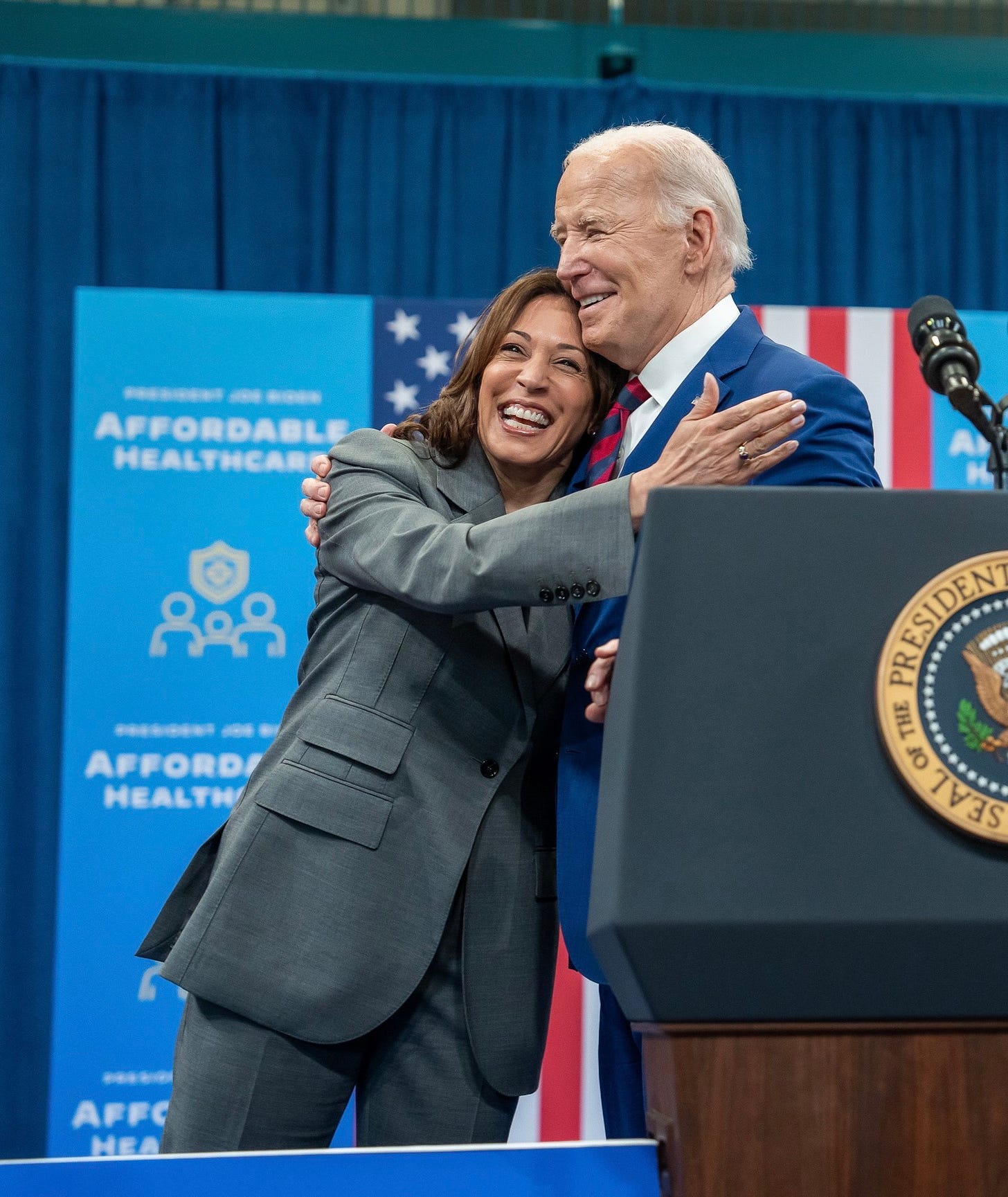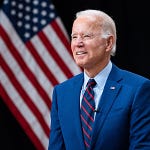Vice President Harris and President Biden spoke in Raleigh, NC, about their administration's efforts to lower healthcare costs and make healthcare more accessible and affordable for Americans. The Vice President highlighted their accomplishments, including cutting prescription drug costs, expanding Medicare and Medicaid, and making the largest investment in youth mental health. She emphasized healthcare as a right, not a privilege, and criticized efforts by some to undermine healthcare access.
President Biden discussed the Affordable Care Act's impact and efforts to reduce prescription drug prices and criticized the opposition's attempts to repeal healthcare achievements. Both underscored their commitment to expanding healthcare access and criticized policies that threaten healthcare coverage and reproductive rights.
A national emergency regarding significant malicious cyber-enabled activities, first declared on April 1, 2015, and expanded on December 28, 2016, has been extended by President Biden beyond April 1, 2024. This extension is due to these activities' ongoing threat to the U.S. national security, foreign policy, and economy. The emergency, addressing threats from activities primarily originating outside the U.S., will continue for another year as per the National Emergencies Act.
The President has also extended the national emergency regarding South Sudan, initially declared on April 3, 2014, due to ongoing threats to U.S. national security and foreign policy. The situation in South Sudan involves violence, human rights abuses, and obstruction of humanitarian efforts, necessitating the continuation of this emergency status beyond April 3, 2024, for another year.
President Biden addressed the collapse of the Francis Scott Key Bridge in Baltimore, caused by a container ship collision. He recounted the immediate response from various federal and local units and confirmed ongoing search-and-rescue efforts for the eight unaccounted individuals, with two already rescued. The President communicated directly with Maryland's governor, Wes Moore, Baltimore's mayor, Brandon Scott, and other officials and promised substantial federal emergency response and reconstruction aid.
He reassured the public about the incident's accidental nature, highlighting preemptive actions that saved lives. The President emphasized the critical economic and logistical role of the Port of Baltimore and the bridge, committing to a swift and federally funded reconstruction. He acknowledged the bridge's importance to the Northeast Corridor's economy and quality of life. President Biden concluded by offering prayers for those affected and gratitude towards first responders, deferring further questions due to the ongoing situation and confirming his intention to visit Baltimore soon.
The White House Office of Gun Violence Prevention (OGVP) hosted an event that brought together mothers from across the nation who have been directly impacted by gun violence. These women, who are leaders in their communities, run organizations dedicated to supporting victims and survivors of gun violence. The meeting provided a space for them to share their experiences, discuss the challenges they face in obtaining resources, and learn about available assistance from the government.
The session coincided with Vice President Kamala Harris's efforts in Parkland, Florida, where she advocated for red flag laws and announced the creation of a national resource center to support their implementation. These laws aim to prevent individuals deemed dangerous from accessing firearms.
This gathering highlights the Biden-Harris Administration's broader strategy to combat crime and enhance public safety, which includes significant funding through the American Rescue Plan and the Bipartisan Safer Communities Act (BSCA) for violence prevention programs, increased emergency responders, and mental health services in schools. The Administration reports a decrease in violent crime and murders, attributing this success to their policies and initiatives aimed at curbing gun violence and supporting community safety.
During a press gaggle aboard Air Force One en route to Raleigh, NC, Press Secretary Karine Jean-Pierre discussed President Biden's response to Baltimore's Francis Scott Key Bridge collapse, including mobilizing federal resources for search, rescue, and rebuilding efforts. Biden has assured full federal support for reconstruction and has been in contact with local and state officials. In Raleigh, President Biden and Vice President Harris presented their healthcare agenda, aiming to strengthen the Affordable Care Act, Medicaid, and Medicare and reduce healthcare costs, in contrast to Republican proposals.
The briefing continued by mentioning the U.S. approval of a $10 million assistance package for Haitian security forces to combat gang violence, including weapons, ammunition, and protective gear. The administration intends to fully fund the reconstruction of the Francis Scott Key Bridge and is considering expedited processes for rebuilding. Jean-Pierre also addressed ongoing Middle East peace talks, urging Israel to minimize civilian casualties. She expressed concern over electoral fairness in Venezuela and mentioned the investigation into the bridge collapse without speculating on regulatory changes for foreign ships.
Jean-Pierre emphasized the administration's commitment to infrastructure, healthcare reform, and international diplomacy, planning to work closely with Congress and local officials on these issues.
Today, key White House officials, including Jennifer Klein, Stefanie Feldman, and Erica Songer, hosted a roundtable with survivors to discuss the intersection of gun violence and domestic violence. This session aimed to gather insights on how the Biden-Harris Administration can enhance its efforts to protect Americans from gun-related gender-based violence. Acknowledging the severe impact of gun violence intertwined with gender-based violence, the officials reaffirmed the Administration's commitment to tackling these issues. They highlighted significant steps already taken, including the strengthening of the Violence Against Women Act, the Bipartisan Safer Communities Act to close the "boyfriend loophole," and the establishment of the first-ever U.S. National Plan to End Gender-Based Violence. Survivors and advocacy group representatives shared personal stories and emphasized the necessity of joint efforts to combat gun-related domestic violence. The roundtable coincided with the Supreme Court's review of a crucial federal law aimed at preventing individuals under domestic violence protective orders from accessing guns. Participants included Mayor Sheng Thao, activists, and representatives from organizations dedicated to ending domestic and gun violence.
National Security Advisor Jake Sullivan met with his Japanese counterpart, Akiba Takeo, at the White House to prepare for Prime Minister Kishida's upcoming official visit to the U.S. next month. They focused on finalizing key deliverables for the visit, addressed pressing regional and global challenges, and emphasized the critical role of the U.S.-Japan Alliance and cooperation with like-minded partners in maintaining peace and stability in the Indo-Pacific.
President Biden and Vice President Harris give remarks on a joint tour in Raleigh, North Carolina













